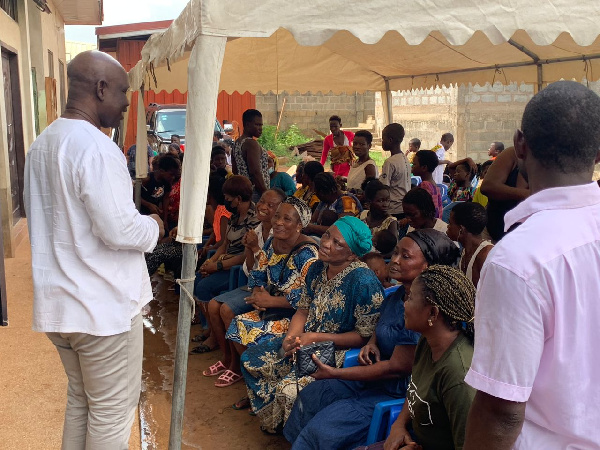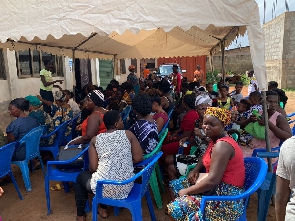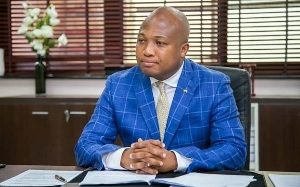A church in Ogbojo, a suburb of Accra, has ensured that some 300 plus community members have been registered onto the National Health Insurance Scheme (NHIS).
The gesture by the Restoration Community Chapel is in line with the church’s Corporate Social Responsibility (CSR) and in partnership with a non-governmental organization, Doxa Women of Substance.
In all, the more than 300 residents of Ogbojo within the Adentan Municipality benefited from the free NHIS registration, as well as a medical screening including breast cancer.
This is part of the church’s 12th anniversary.
Speaking in an interview, the Branch Pastor of the Restoration Community Chapel, Rev. Eric Okpoti-Paulo, explained that beyond the spiritual needs of its members and the community at large, it is also concerned about the physical well-being of the people.
“We notice that even though we’ve been part of East Legon, there are a lot of urban poor people here, a lot of squatters here: we have them in our church so we know, and often, people come, they are sick and they go to the hospital with no money.
“So, I thought to myself that we NHIS and we won’t they register for it. You’ll think the money is small but they can’t even afford it. So, we took advantage of our 12th anniversary and decided that we will, as our social responsibility, also help in the little way that we can, to give 200 adults and 100 children the opportunity to be registered.
“Even though we said 200, we estimated that we may be able to take care of about 300 to 400 people,” he said.
Rev. Eric also said that it is the hope of the church that with this exercise, many of the community members can easily access health when they need it.
“There are a lot of deprived people in the community, who can be described as urban poor, and this exercise is to help them as part of our social responsibility to them,” he said.
Following the medical screening, some people between the ages of 35 and 45 were diagnosed of hypertension and diabetes, while some two women asked to seek further treatment because they had discharges from their breasts.
This is the second time the church has organized such an event and there are plans to continue helping the community in other relief areas.
“We are also planning to teach people how to make beads and other items in order to financially equip them so that they can support their children, partners and families,” he added.
He stressed that the women’s wing of the church plans on also helping the women in the area who are mostly single parents with loan facilities in an attempt to help them boost their businesses.
Rev Okpoti-Paulo also explained the church is focused on equipping the youth of the area to aspire for higher education, so that they avoid the temptations for such things as the craze for quick monies.

In one such example, the church supported a young man who decided to become a buss conductor (trotro mate) by giving him the money he earns in a day while sending him back to school.
Re. Eric Okpoti-Paulo called on the government to strengthen and equip the Department of Social Welfare so that it is able to assist such individuals and their families.
A Client Attendant at Madina NHIS Office, Philip Santah, debunked the assertion that the NHIS does not work, while urging Ghanaians to ignore such comments and roll onto the platform to reduce the financial burdens associated with their healthcare delivery.
About Doxa Women of Substance
Doxa Women of Substance is the women’s fellowship of the Restoration Community Chapel which basically provides additional spiritual and social welfare support for the women in the church beyond what the church does.
As a way of training, equipping and supporting women to earn an income and contribute to the upkeeps of their children, particularly for single mothers, the leadership of the church expanded such services to embrace other non-church members in the community, including the youth in particular, hence the setting up the NGO.
The purpose of Women of Substance therefore, is to improve the livelihoods of the financially less endowed women in the church primarily and in the community at large through job creation. The youth, both male and female would also be roped in to benefit from packages that will be provided.
Religion of Tuesday, 8 November 2022
Source: www.ghanaweb.com



















